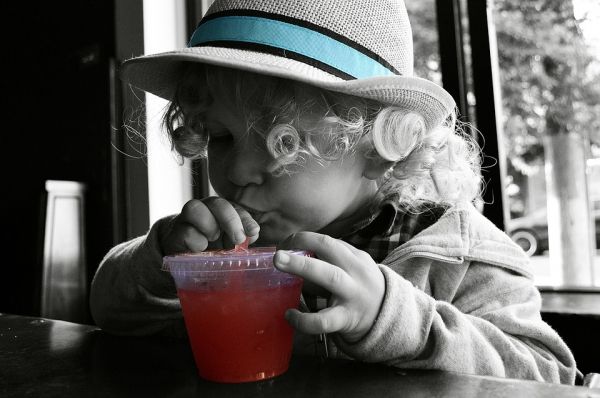Health and nutrition experts recommend that children do not consume drinks with added sugars or nonnutritive sweeteners, yet drinks containing both represent a major portion of beverages consumed by children. One reason may be that the labels of drinks marketed to kids do not help parents and other consumers differentiate among fruit juice and sugar-laden, artificially flavored drinks, finds research from NYU School of Global Public Health.
While the FDA regulates drink labels, it permits a wide range of names, claims, and fruit images on packaging that do not necessarily reflect the drink’s ingredients. For example, more than 60 percent of drinks with added sugar include a positive nutrition claim about sweeteners, while more than a third of drinks with fruit pictured on the packaging do not include juice from any of the fruits shown.
The study, published in the American Journal of Public Health, recommends that the Food and Drug Administration (FDA) revise its labeling regulations to help consumers make healthier choices.
“Given the many different drinks marketed to children that contain or appear to contain juice, it is important that caregivers are able to differentiate among products and identify healthier options,” said Jennifer Pomeranz, assistant professor of public health policy and management at NYU School of Global Public Health and the study’s lead author.
Read more at New York University
Photo Credit: tykejones via Pixabay


